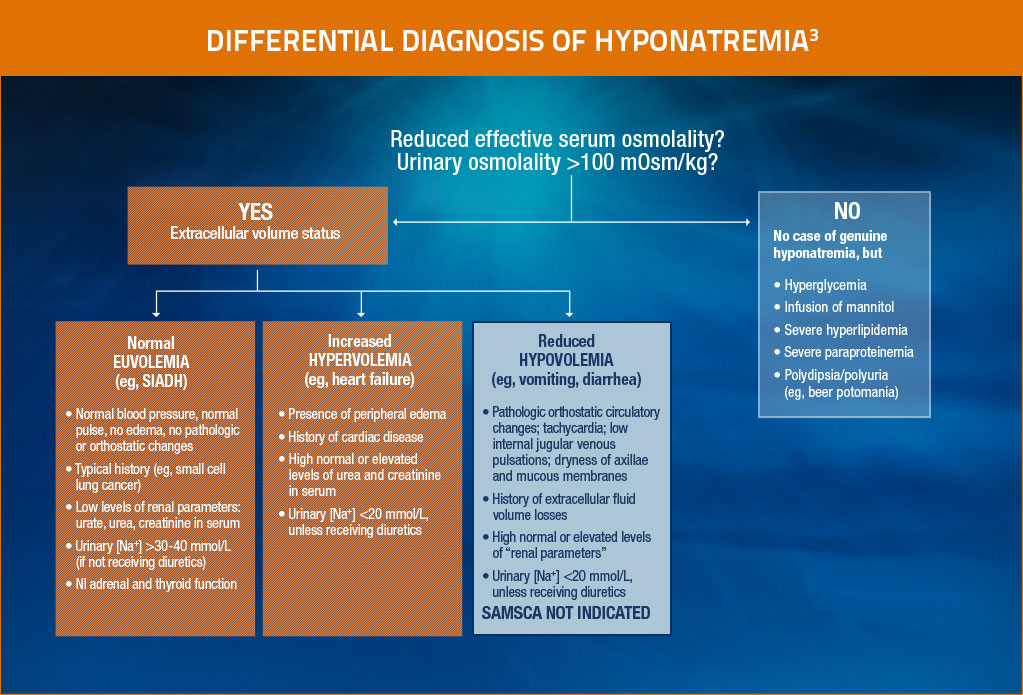Syndrome of Inappropriate Antidiuretic Hormone (SIADH): a major cause of euvolemic hyponatremia
Euvolemic hyponatremia is characterized by normal or excess extracellular fluid volume. Hyponatremia in SIADH is marked by water retention secondary to an increase in serum vasopressin and urinary sodium excretion.1
SIADH accounts for 60% of all types of chronic hyponatremia and is the most common etiology of hyponatremia in hospitalized patients.2
Diagnosing hyponatremia in SIADH
Adapted from Gross P, Ther Adv Endocrinol Metab, 2012.3
Diagnostic criteria of SIADH4
- Plasma osmolality <275 mOsm/kg water
- Inappropriate urinary concentration
(urine osmolality >100 mOsm/kg water) - Euvolemic volume status
- Elevated urinary sodium with normal salt and water intake
- Absence of other potential causes of euvolemic hypo-osmolality
(hypothyroidism, glucocorticoid deficiency, or diuretic use)
Supplemental criteria4
- Abnormal water load test
- Plasma vasopressin levels inappropriately elevated for plasma osmolality



